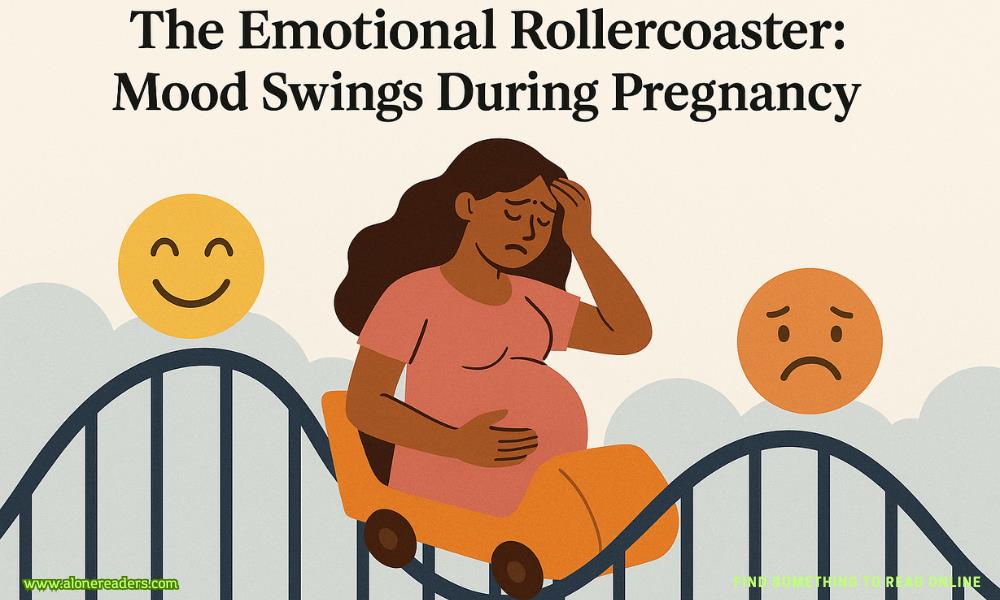Page 13 of The Starving Saints
And she does. Phosyne falls back, clutching air. Her hands are burned, no doubt, curled in as the flesh melts and bubbles. It looks for all the world like she is clutching something, some slip of shadow, but that can only be Voyne’s overtaxed mind.
It doesn’t matter. Voyne shouts, instead, for help. In an instant, Leodegardis is there, Galleren is there, they are scattering the ignited coals, kicking dirt over them, stamping them out. That leaves Voyne to return to Phosyne’s side, furious.
Phosyne is on her belly in the dirt now, hugging herself. But she is not sobbing with pain.
She lifts her head, and looks back at Voyne, defiant.
Snarling, Voyne seizes her by the hair, barely long enough to allow rapacious fingers.
Phosyne gasps in pain and her arms twitch. Again, it looks as if she holds something slender, like a cat, but there is nothing there. Another bit of her madness? Does she hallucinate, too? Or does the witch force the world out of its order? Spit in the Constant Lady’s face?
“Do notdaremove, witch,” Voyne growls into her ear.
Phosyne tries to hunch, but Voyne drags her head back; she has no patience left to let Phosyne hide.
“I apologize,” the madwoman gasps out. “I didn’t mean—let me go. I’ll go back to my tower, the attack is over, I will go back to my work, please—”
And Voyne is out of patience. She slams Phosyne into the wall of the smithy.
“Give me one reason why I should not have you brought before my liege for nearly finishing Etrebia’s work,” she says, low and even into Phosyne’s ear. There is none. None at all. Whether Etrebia retreats or remains in the morning, Voyne will be quit of this insipid creature.
But the glow of the explosions of Etrebia’s siegecraft, the glow of the charcoal pile, is in Phosyne’s eyes as she says, triumphant, “I have an idea for a miracle.”
6
When the next dawn comes, Etrebia remains encamped.
Treila is not surprised; she has long given up on miracles. But Edouart and Simmonet are distraught. They thought their salvation was at hand, when the news spread through the tight press of bodies sheltering in the lowest levels of the keep. She’d taken them with her into her workroom, if only so she could get there quickly, make sure her little gap was safe, and had been kept up far past the end of the bombardment by their hopeful whispers.
They cry themselves to sleep each night, now that they know the truth: victory does not mean freedom, and they are all still starving.
Some died in the bombardment. There is a funeral the next day. Treila thinks that, had nobody died at all, the inhabitants at Aymar might have collapsed in on themselves in frustrated, aimless agony. Death provides catharsis. She knows that her own father’s murder gave her focus, in those first terrible days.
It was all she could see, as she scraped for bits of food, for makeshift shelter: her father on his knees before King Cardimir, her father’s neck bared to Ser Voyne’s sword. Her father’s young wife, so recently wed, begging for mercy. Her father silent, all his obscenities exhausted before dawn, when he was dragged from his bed, from his chambers, from his title. No longer Lord de Batrolin: the king had declared him a traitor, and so her entire world had been redefined.
A lesser girl would have been consumed by that grief, even as she and her stepmother and her father’s closest servants were thrust from the house, marched off the land and into the wilderness. A softer girl would have wept, and refused to walk, and starved.
Instead, she had taken the rage beneath the grief and used it to keep her going. The servants left, or died; her stepmother disappeared the first night, likely running back to the king to beg mercy once more. And Treila had kept walking.
Aymar has nowhere to go, though. Soon the grief will pass and the stomachs of its wretched inhabitants will remind them how much they can still suffer. It will ease things, briefly, having fewer mouths to feed, though not nearly long enough. Each mouth already eats so little.
Treila does not attend the funeral. She does not attend many services. Half of it is her squandered faith, trampled in the dirt five years ago and never quite recovered; the Constant Lady does not have a saint for her, no Vengeful Saint or Starving Saint. No true balm for her bitterness, no witness and no succor.
The other half is pragmatic wariness. She knows how quickly a single beesting can multiply to hundreds, courtesy of her desperate attempt to tear a wild hive open to get at the honey within. They stung her bleeding and raw. She had nearly died.
She’d fled, then collapsed in a meadow where, swollen and still starving, she’d dreamed of the Constant Lady. Each stinger throbbed where it rested in her skin, and the too-perfect Lady had looked down at her, face immobile. No benediction, no offer of salvation—just silent judgment, and then She’d turned and walked away.
It seems absurd to think that a visitation, when a fevered nightmare makes far more sense. But Treila still has never shaken that feeling of abandonment, of censure. And if the Priory knew about that day, about how she’d violated the hive, how she’d been struck down in retribution, she imagines they wouldn’t want her, either.
So she takes their blessing on her tongue each day as they walk the castle walls, because everybody else does it, because she does not want to stand out. But otherwise, she keeps her distance.
Instead, Treila works to clear the hole at the base of the wall. She pulls out loose stones one by one and discards them among the rubble. It takes far longer than the length of the funeral, of course. She works for days. Sometimes, it is busy enough that she is lost in the bustle, but people are moving around less and less. They are hunkering down, preparing for their own individual sieges. And by aday after the bombardment, word has gotten out; the scanty rations the quartermaster gives out each morning will still be gone in two weeks. Maybe less.
Boots are being hoarded for boiling.
And people are watching. Prying. The guards are now looking inward instead of outward half the time, afraid of another riot, and every idle farmer watches for any alteration in patterns of behavior. Everything is a potential threat, even Treila with her rocks.
So when she can’t excuse her ramblings in the day, she does it at night. The rats help, or their scant corpses; she makes a deal with the quartermaster, finally, to bring him what she catches. She can see anger in his eyes when she offers, because he could have used her months ago, but he has no room to fight her.















